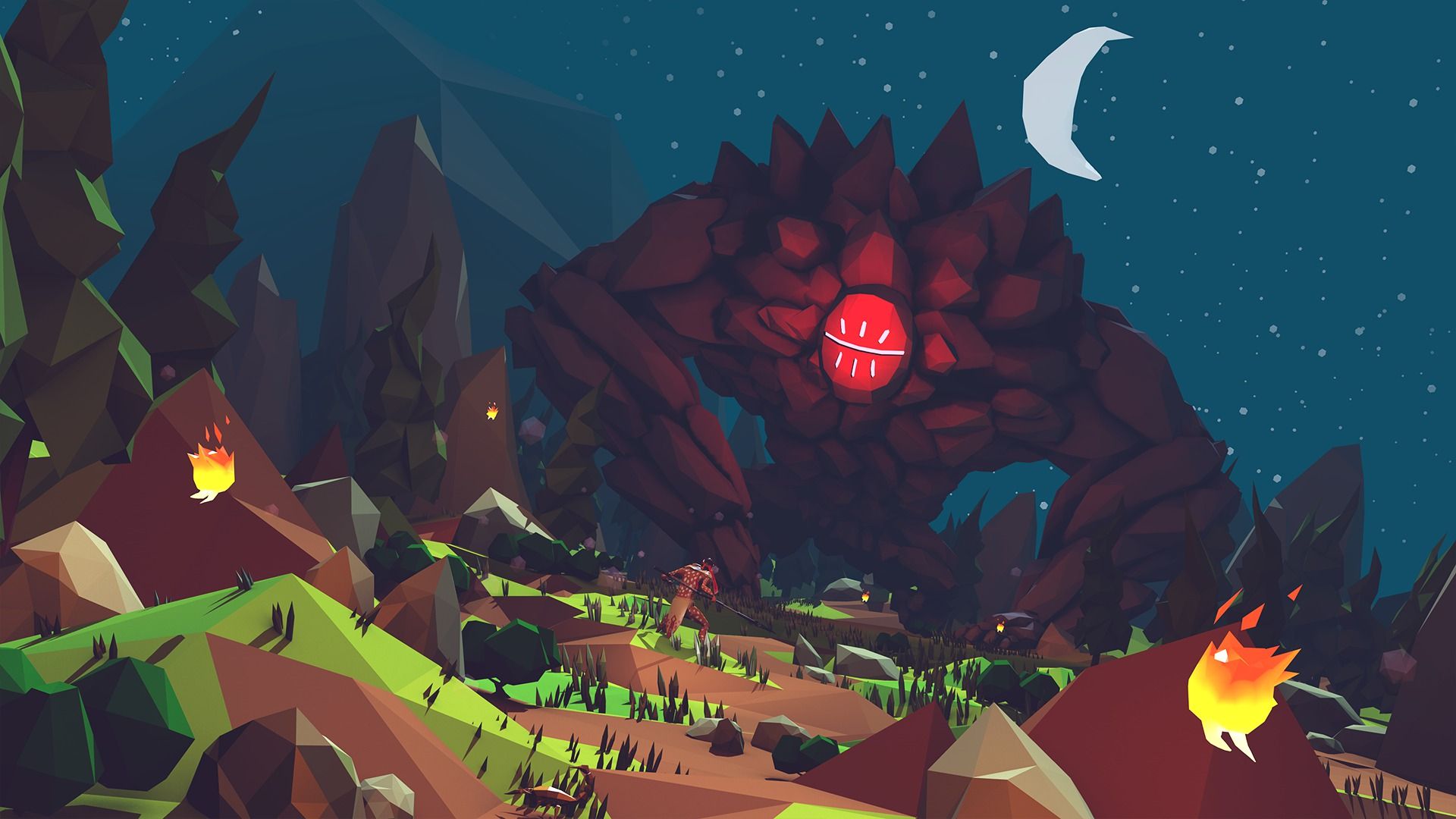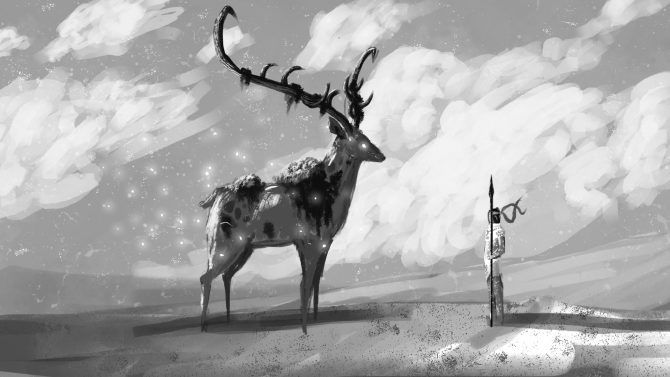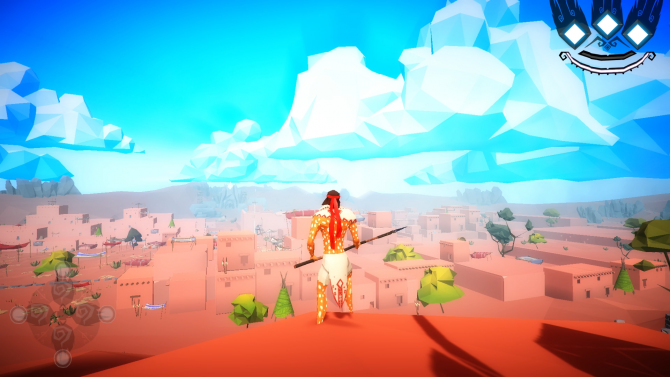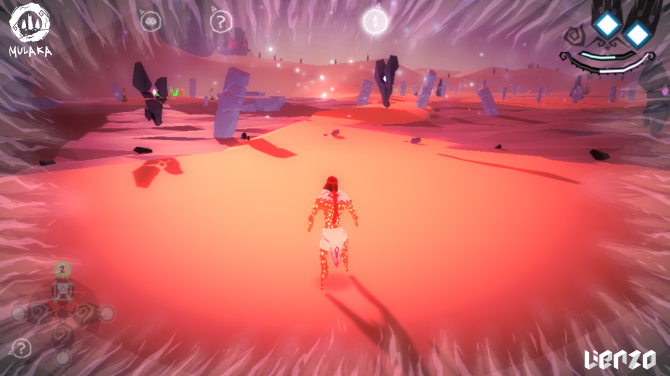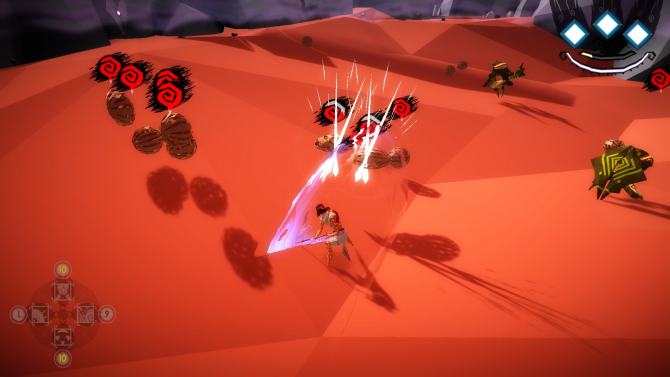Different cultures and their mythologies have survived for generations through storytelling, both orally and visually. Unfortunately, a side-effect of globalization is the loss of tradition and the intriguing stories of smaller peoples like Mexico's Tarahumara, which has a very distinct and creative mythology surrounding it that not many people know about. That's why developer Lienzo took it upon themselves to try and preserve the culture and its mythology in Mulaka.
The game pulls from the Tarahumara People's vast mythology to create a unique adventure and a world that isn't quite like anything I've played in a game before. While Mulaka does falter a bit due to inconsistent graphics and lackluster combat, I found the world and culture it presented highly fascinating and educational, exposing me to a wholly foreign but intriguing mythology that has a ton of untapped modern storytelling potential.
[pullquote]"I found the world and culture it presented highly fascinating and educational, exposing me to a completely foreign but intriguing mythology that has a ton of untapped modern storytelling potential."[/pullquote]
Mulaka begins with the titular character, who is a mystical shaman called the Sukurúame, arriving in the Sierra Tarahumara. This land is populated by the Tarahumara people, who are children of the stars birthed by the sun and moon, and has been plunged into chaos due to endless conflict and the constant interference of an evil being called Teregori. To defeat that monster and save the world, Mulaka goes on a journey to receive assistance from various demigods that take the form of different animals in taking down the Teregori.
While the story the game is telling isn't highly original, its world more than makes up for it. It's colorful and filled to the brim with several unique creatures, from the Tarahumara people to the various enemies, including the Seeló Mantis Men that Mulaka fights along his journey. Developer Lienzo did their research when adapting the Tarahumara people's mythology, creating a world that is wholly unique to Mulaka that you definitely won't find anywhere else.
That being said, I was a bit ambivalent about the game's ending. Without spoiling anything, I felt that Mulaka makes a weird choice that counteracts what he's working towards, even though his decision makes sense within the world's mythology. Like I mentioned before, the story itself isn't the game's strongest suit, but I find the world and some of the creatures and characters that populate it utterly fascinating.
When it comes to presenting this world visually and aurally, this can be a mixed bag. When it comes to the soundtrack, Mulaka knocks it out of the park, offering a memorable score that has a unique and ethnic feel. Sound effects are also solid, even if some of Mulaka's screams and grunts can be a bit over the top.
When it comes to visuals, things will get much bumpier for some. Major cutscenes use the beautifully painted images seen above, but the game itself employs a low-poly art-style, similar to the style games like Firewatch go for. This art style can be quite divisive, as some people don't like the more minimalistic nature of it, and unfortunately, Mulaka doesn't pull it off flawlessly.
[pullquote]"When it comes to the soundtrack, Mulaka knocks it out of the park...."[/pullquote]
From afar, everything looks pretty good, as Lienzo used this somewhat more straightforward style to give Mulaka's world a broader scope, but upon closer inspection, some cracks do start to show. Some edges and water look a little too jagged and unnatural, with that also carrying over to people in the game. While their bodies' odd geometry can be considered an artistic choice, the faces look uncanny.
I also found many of the game's animations to be janky and off-putting, even in the game's non-realistic style. While the visuals of Mulaka certainly won't be for everyone and have a few problems of their own, you can't deny how vibrant and colorful the game is. All of the environments and enemies are shaded distinctly, giving this colorful culture and mythology the vivid art style it deserves.
When it comes to basic platforming and puzzle solving, Mulaka is pretty good. Along Mulaka's journey, he will encounter four animal demigods, all of which give him the power to transform into them. Players can use a woodpecker to fly, a bear to break down sturdy objects, a puma to pounce on specific objects and scale some pre-designated walls, and a snake to freeze things and travel across water.
There are also four potions at players' disposal by the end of the game, each of which is collected by picking up certain plants scattered across the game's world. These can heal Mulaka, give him a temporary shield, be used as a bomb, or increase attack. These each has wind-up animations to be used though, so they have to be used carefully, so enemies don't cancel out their use with an attack. Mulaka can also get upgrades through Korimas that he collects by defeating enemies at a shop, though most of its effects are pretty negligible.
Sukurúame vision also lets players see enemies health and where objectives are in the game's world. This also shows players where main collectibles needed to progress are, along with hidden secrets that help flesh out the game's world even more and scratch that completionist itch. The "adventure" part of Mulaka's action-adventure description is up to par, but problems with combat hold the title back.
Mulaka's primary weapon is his spear, which he can throw or use light and heavy attacks with. These attacks can be stringed into light combos, and the addition of a dodge roll encourages having the right timing when fighting enemies. Mulaka's health also consists of three different souls (as that is how many men have in the Tarahumara culture), and he can use an ultimate attack after a meter is fully charged up from attacks.
The game's enemies are all defeated slightly differently than each other, which should keep the combat engaging; unfortunately, the lack of a decent way to lock onto enemies really kills the combat for me. Having a lock-on system similar to that present in the 3D The Legend of Zelda games may have benefitted Mulaka, especially with how it pulls other aspects of its game design from those games.
I sometimes found it difficult to aim or attack precisely where I wanted to, and with some enemies requiring precision to take down, things can quickly get annoying if you aren't careful. I never found that this made the game overly complicated, just a bit cumbersome at some points, especially since the game seems to think it has better combat than it really has.
At several points in each area, you will be locked in a small arena and have to take down waves of enemies. Sadly, these sometimes came at inopportune times that could mess with Mulaka's pacing. The game does make up for this in its boss fights though, which are very creative, having you do things "deflate" the arms of a ghost to fly up and attack it. Combat can be very mediocre at times, but the exploration and platforming side of things do keep the game from delving into the realm of the horribly frustrating.
[pullquote]"If you can get past the somewhat janky visuals and combat, you will find a decent action-adventure game that does an excellent job exposing new people to an intriguing culture and mythology."[/pullquote]
On the technical side of things, Mulaka does fair pretty well on Nintendo Switch. While I did notice the occasional framerate drop and he slight hit the visuals took while exploring some of the more vast areas in handheld mode, it was far from detrimental to the experience. That being said, I did run into two glitches that caused me to have to reload the game, but Lienzo is aware of these bad glitches and working to patch them out. If you decide to go with the Switch port of Mulaka, you shouldn't run into many glaring technical problems.
If you can get past the somewhat janky visuals and combat, you will find a decent action-adventure game that does an excellent job exposing new people to an intriguing culture and mythology. If you are a fan of games that infuse history or different mythologies into the experience and have not heard of the Tarahumara people, Mulaka is definitely worth checking out. It is vital to preserve smaller and somewhat ignored cultures through things like storytelling, so I'm glad Lienzo choose to do so for the Tarahumara people in an interactive way with Mulaka.

